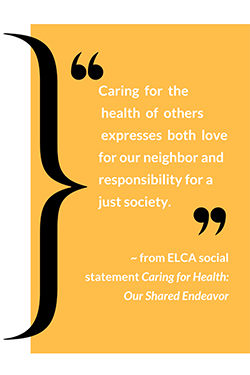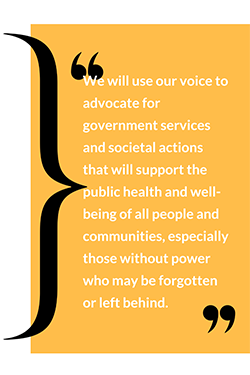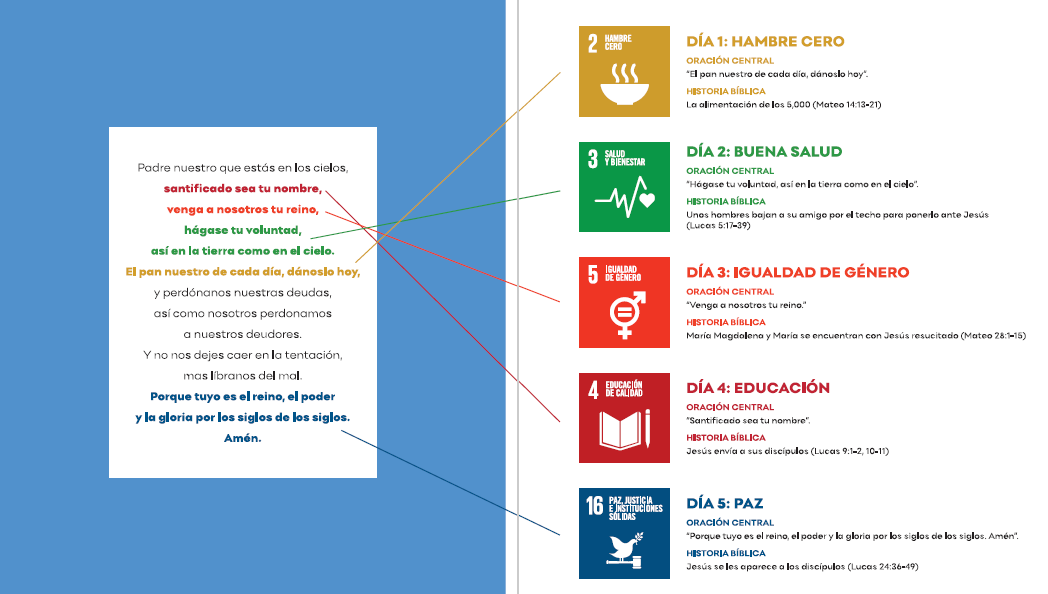U.N. | Arizona | California | Colorado | Delaware | Kansas | Minnesota | Ohio | Pennsylvania | Southeastern | Texas | Washington | Wisconsin
Following are updates shared from submissions of the Lutheran Office for World Community and state public policy offices.
Lutheran Office for World Community, United Nations, New York, N.Y.
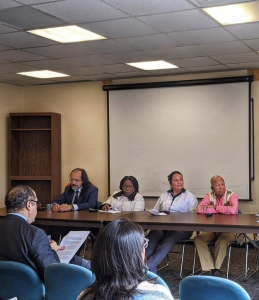 DEFENDING PEACE AND HUMAN RIGHTS IN COLOMBIA: On February 26, LOWC co-hosted, on behalf of the Lutheran World Federation, Caritas Internationalis and the World Council of Churches, a briefing by four winners of the National Prize for Human Rights in Colombia. Those who spoke were: (second from left) Ms. Clemencia Carabalí, 2019 National Prize for the Defense of Human Rights “Defender of the Year” Award Winner and Director, Association of Afro-descendant Women of Norte del Cauca (ASOM); (far right) Mr. Ricardo Esquivia, 2019 National Prize for the Defense of Human Rights “Lifetime Defender” Award Winner and Executive Director of Sembrandopaz; (second from right) Ms. Annye Páez Martinez, Representative of the Rural Farms Association of Cimitarra River Valley and 2019 National Prize for the Collective Experience or Process of the Year; and (far left) Mr. Marco Romero, 2019 National Prize for the Defense of Human Rights “Collective Process of the Year” Award Winner and Director, Consultancy for Human Rights and Displacement. The group was visiting New York and Washington, D.C. under the sponsorship of Diakonia and ACT Church of Sweden to discuss the ongoing challenges of protecting human rights and encouraging efforts toward peace despite limited implementation of the 2016 agreement between the Colombian government and the Revolutionary Armed Forces of Colombia (FARC).
DEFENDING PEACE AND HUMAN RIGHTS IN COLOMBIA: On February 26, LOWC co-hosted, on behalf of the Lutheran World Federation, Caritas Internationalis and the World Council of Churches, a briefing by four winners of the National Prize for Human Rights in Colombia. Those who spoke were: (second from left) Ms. Clemencia Carabalí, 2019 National Prize for the Defense of Human Rights “Defender of the Year” Award Winner and Director, Association of Afro-descendant Women of Norte del Cauca (ASOM); (far right) Mr. Ricardo Esquivia, 2019 National Prize for the Defense of Human Rights “Lifetime Defender” Award Winner and Executive Director of Sembrandopaz; (second from right) Ms. Annye Páez Martinez, Representative of the Rural Farms Association of Cimitarra River Valley and 2019 National Prize for the Collective Experience or Process of the Year; and (far left) Mr. Marco Romero, 2019 National Prize for the Defense of Human Rights “Collective Process of the Year” Award Winner and Director, Consultancy for Human Rights and Displacement. The group was visiting New York and Washington, D.C. under the sponsorship of Diakonia and ACT Church of Sweden to discuss the ongoing challenges of protecting human rights and encouraging efforts toward peace despite limited implementation of the 2016 agreement between the Colombian government and the Revolutionary Armed Forces of Colombia (FARC).
ADVOCATING HUMAN RIGHTS IN THE 21ST CENTURY: Also on February 26, the Alliance for Multilateralism held a discussion “Advocating Human Rights in the 21st Century – building bridges between Geneva and New York” to support the protection and promotion of human rights in the context of strong and effective multilateral cooperation as “an indispensable foundation for securing peace, stability and prosperity.” An aim of the event was to underscore the relationship between discussions about human rights in Geneva, primarily at the Human Rights Council, and those on international peace and security in New York, primarily at the Security Council. Another objective was to examine, as outlined in a preparatory concept note, the New York-Geneva relationship with respect to “specific contemporary human rights issues such as women’s rights and gender equality, the effects of climate change on human rights, and risks and opportunities of digitalization and artificial intelligence for the protection of human rights.” German Foreign Minister H.E. Mr. Heiko Maas had issued the invitation and also spoke, but the event was sponsored by at least eleven other permanent missions in New York. The webcast can be accessed here.
Arizona
Solveig Muus, Lutheran Advocacy Ministry Arizona (LAMA) director@lamaz.org
Greetings from the Grand Canyon Synod (GCS), and from the new Lutheran Advocacy Ministry Arizona (LAMA)! We give thanks to God as we seek to live out our baptismal call to “defend human dignity, to stand with poor and powerless people, to advocate justice, [and] to work for peace” (The Church in Society: A Lutheran Perspective). After a 12-year hiatus and a year of planning, a committed group of clergy and lay leaders brought the dream of an advocacy office in Arizona to life once again. Together with our partners at Lutheran Social Services of the Southwest (LSS-SW), and using the ELCA’s social teaching documemts as our guide, we look forward to being God’s hands and feet in the world, following the path of serving people and encouraging GCS people to do the same.
At our January Policy Committee retreat we discussed priorities for this Legislative session, heard from Angie Rogers with the Association of AZ Food Banks, and from ELCA Advocacy Director, Domestic Policy John Johnson via Zoom. Our first action was for committee members to join LSS-SW for the 2nd annual Refugee Lobbying Day at the Capitol on February 10th to gain legislative support and pass the Refugee Welcoming Bill. Solveig Muus agreed to be the director of this new ministry. Her experiences with building businesses, passion for connection, and a heart for the most vulnerable among us has kept the ministry moving forward.
In this early building stage we will: introduce ourselves to our congregations and identify ministry partners and create website and social media platforms (FOLLOW us on FB at @LutheranAdvocacy. We are following you!). Our priorities for March will be to go live with a website, grow our network, learn about the legislative process, engage with our congregations on the 2020 Census and lift up the new ELCA World Hunger VBS God’s Good Creation for summer planning.
Our thanks to those who have been willing to share your resources and knowledge. We ask for your prayers as this ministry continues to unfold.
California
Regina Q. Banks, Lutheran Office of Public Policy- California (LOPP-CA) lutheranpublicpolicyca.org
 END CHILD POVERTY DAY OF ACTION: The Lutheran Office of Public Policy- California came together with faith partners and anti-poverty activists for the End Child Poverty day of Action. Following moving speeches and a press conference on the west lawn of the capitol, participants walked the halls of the legislative and executive offices to garner support for a plan to end childhood poverty in the state by 2030. The event was well attended, and legislators and staff appeared open to our positions. Contact LOPP-CA for ways to get your congregation involved in the campaign.
END CHILD POVERTY DAY OF ACTION: The Lutheran Office of Public Policy- California came together with faith partners and anti-poverty activists for the End Child Poverty day of Action. Following moving speeches and a press conference on the west lawn of the capitol, participants walked the halls of the legislative and executive offices to garner support for a plan to end childhood poverty in the state by 2030. The event was well attended, and legislators and staff appeared open to our positions. Contact LOPP-CA for ways to get your congregation involved in the campaign.
CALFRESH 2020 FORUM: The CalFresh 2020 forum is a working conference dedicated to identifying and planning strategies to improve the reach of CalFresh throughout the state. CalFresh- formerly known as food stamps- is a program that helps families acquire healthy and nutritious food in their local community. The uptake rate of the program, especially in otherwise vulnerable populations, needs improvement. We lobbied for a variety of legislative policies that would lead to a more equitable and sustainable food distribution chain. With our commitment to food and farming policy this year, LOPP-CA is a strong partner with California Food Policy Advocates and the California Food and Farming Network. For more information about how your congregation can take the next step from food pantry to food policy advocacy, contact Nicole Newell at nicole.newell@elca.org.
CONGREGATIONAL VISITS: A special and heartfelt “Thank You” goes out to the pastors and members of the following congregations for inviting LOPP-CA into your Sunday worship experience. It is always a blessing to see the many ways that the spirit is moving in our communities and share a bit about the work that we do here with individual members and worshiping communities: Advent Lutheran in Citrus Heights, Calif.; St. Paul Lutheran in Fullerton, Calif; Advent Lutheran in Auburn, Calif; Holy Trinity Lutheran Church in Thousand Oaks, Calif; and American Lutheran Church in Burbank, Calif. If you are interested in hosting LOPP-CA for worship, contact Regina Banks at regina.banks@elca.org.
Colorado
Peter Severson, Lutheran Advocacy Ministry-Colorado www.lam-co.org
DEATH PENALTY WILL BE REPEALED: We are thrilled to join a broad-based faith community and the ACLU of Colorado in successfully advocating for the repeal of the death penalty in Colorado. The bill, SB 20-100, passed its final vote in the House on February 26. It heads to the desk of Governor Jared Polis, who has promised to sign it.
The bipartisan legislative effort was led by Senators Julie Gonzales and Jack Tate and Reps. Adrienne Benavidez and Jeni James Arndt. The effort was repeated four times in the previous decade, but this year’s bipartisan cooperation ensured the bill’s passage.
ELCA Lutherans have long opposed the death penalty for a variety of reasons, all deriving from our Gospel witness: it is impossible to undo a mistake, it is applied unequally, it is using violence to respond to violence, and it does not reflect the restorative way taught by Jesus. With gratitude for all the voices that engaged this process on all sides, we welcome this new day that is dawning.
LUTHERAN DAY AT THE LEGISLATURE: Nearly 80 advocates came together for Colorado Lutheran Day at the Legislature on February 27. We are grateful that Rep. Jeni Arndt joined us in the morning to talk about death penalty repeal and excited that almost every attendee had the opportunity to speak to at least one of their legislators face to face.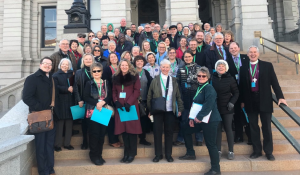
Delaware
Gordon Simmons, Delaware Lutheran Office for Public Policy delutheranpublicpolicy@gmail.com
The Delaware Lutheran Office for Public Policy is concentrating on two issues in 2020: education and the environment. There is a major Commission working on revisions to the educational system in the state, with an emphasis on Wilmington. This is partly a response to a lawsuit which contends the state is not providing adequate funding to children from low income families or those learning English. In regard to the environment, we have signed onto a resolution from the Sierra Club calling for a movement towards 100% renewable energy. There is a bill before the Legislature which calls for 40% by 2035. The current mandate is 25% by 2025. We are also monitoring the squabble between the State Division for Natural Resources and Environmental Control (which is supporting the move) and the Public Service Commission (which keeps trying to put up roadblocks). We have a day at Legislative Hall planned for March 25 and a larger “Lutheran Day at the Capitol” set for June 13.
Kansas
KIFA’s major focus this year, as in the last two years, is on Medicaid Expansion. Before the session, Gov. Kelly (D) and Senate Majority Leader Denning (R) announced a compromise bill which would expand Medicaid to the statutory 138% of the Federal Poverty Line without work requirements. Our alliance supported the bill. However, other Republican leaders still oppose expansion, and things became complicated when a proposed constitutional amendment on abortion failed to pass the House. Expansion opponents are holding expansion back as leverage for the abortion amendment, despite the two issues being unrelated (Medicaid funding cannot be used to fund abortion in Kansas).
The expansion bill is stuck in a Senate committee; 24 votes are needed for a procedural motion to bring it out of committee but only 23 have been identified. The last several weeks have seen a series of events to keep the pressure on, including statements (op eds, letters to the editor) from faith leaders; a press conference attended by ELCA Central States Synod Bishop Candea among others; a letter from 75 Kansas nuns supporting expansion; and a faith leader event with Gov. Kelly and Sen. Denning which KIFA helped organize that was attended by 35 faith leaders.
One other thing I’d like to mention: at our annual climate and energy lobby day in February, called WEALTH Day, we organized what we consider to be the first comprehensive climate hearing in the Kansas legislature. To talk about this pressing issue, we put together an ad hoc committee made of legislators of both parties and both chambers from a broad cross section of the state. They heard from advocates and experts on a variety of aspects of climate disruption in Kansas, including impacts on the agriculture sector, increased spending on disaster relief and recovery, and the importance of proactive planning for future disruptions. The hearing was very successful and got some press coverage (not enough), but we’re hoping the legislature will have this hearing in front of an authorized committee next year!
Minnesota
Tammy Walhof, Lutheran Advocacy- Minnesota (LA-MN) lutheranadvocacymn.org
FAITH LEADER HOUSING SUMMIT: Many Lutheran leaders participated in a Faith Leader Housing Summit through long-time advocacy partner, Joint Religious Legislative Coalition (JRLC). It was exciting to hear Gov. Walz talk about housing priorities!
PRECINCT CAUCUSES: LA-MN Advocates had the opportunity to bring resolutions to their caucuses on housing & homelessness and clean energy! We hope that major parties will include statements on the party platforms.
“CLEAN ENERGY FIRST” LEGISLATION: Clean Energy First refers to prioritizing clean renewable energy over other sources, if more economically viable. Wind and solar energy have become the lowest cost option, but tweaks are needed to update current law. The Senate Energy & Utilities bill rolls back current statute and redefines clean renewable energy in ways that are not actually clean but does include positive language regarding jobs and transition. LA-MN advocates have made many contacts with legislators to improve the bill, but action is still needed as most of the problems remain.
HOUSING: Many LA-MN advocates contacted legislative leaders to push for $500 million in affordable housing bonds. We appreciate feedback and welcome the legislative responses advocates share with us.
UPCOMING EVENTS:
From the Upper Midwest? Join this event!! Includes worship that sings Easter for the whole creation; young activists sharing their motivations; breakout sessions; faces of the climate crisis; messaging on climate & difficult environmental issues; networking for musicians, students, creation care teams, church gardeners, youth leaders, preachers, public advocates, and more!
Now the Green Blade Rises: The Easter Gospel for the Whole Creation
(2020 EcoFaith Summit) – Flyer / Registration
Saturday, March 28, 9:00 a.m. – 3:30 p.m.
Bethlehem Lutheran Church, 418 8th Ave. NE, Brainerd, MN 56401
Want to meet with your state lawmakers? Come join the Joint Religious Legislative Coalition’s (JRLC) Day on the Hill in St. Paul this April!
2020: Serving the Common Good
Joint Religious Legislative Coalition (JRLC) Day on the Hill – Info/ Registration
Wednesday, April 1, 8:30 a.m. – afternoon legislative visits
InterContinental Saint Paul Riverfront, 11 E Kellogg Blvd, St Paul, MN 55101
Ohio
Deacon Nick Bates, Hunger Network in Ohio hungernetohio.com
 We were very excited to continue our collaboration with the Southern Ohio Synod in February in hosting a training, Seeing Race Through Faith for 30 congregational leaders from across the Dayton area. We discussed the history of American racism and slavery and how it continues through our politics, culture and economy today. We finished the afternoon with situations where we find ourselves in each and every day and are confronted with racism. How can we respond to unite a world that has been segregated by sin? Our first action always needs to be to confess our own sins and ask God to help and guide us.
We were very excited to continue our collaboration with the Southern Ohio Synod in February in hosting a training, Seeing Race Through Faith for 30 congregational leaders from across the Dayton area. We discussed the history of American racism and slavery and how it continues through our politics, culture and economy today. We finished the afternoon with situations where we find ourselves in each and every day and are confronted with racism. How can we respond to unite a world that has been segregated by sin? Our first action always needs to be to confess our own sins and ask God to help and guide us.
Want to learn more? Check out our reading list! White Fragility, Dear Church, The New Jim Crow, Race Matters, Living into God’s Dream; Dismantling Racism in America, America’s Original Sin, How to Be an anti-racist.
RAISE THE WAGE: Did you know that the ELCA Social Statement on economic life says, “Although our identity does not depend on what we do, through our work we should be able to express this God-given dignity as persons of integrity, worth, and meaning. Yet work does not constitute the whole of our life. When we are viewed and treated only as workers, we tend to be exploited.”
As a church we commit ourselves to “…a minimum wage level that balances employees’ need for sufficient income with what would be significant negative effects on overall employment.” Beginning later this month, faith leaders can join with partners around Ohio in gathering signatures to put the minimum wage on the ballot in November!
Pennsylvania
Tracey DePasquale, Lutheran Advocacy Ministry–Pennsylvania (LAMPa) lutheranadvocacypa.org
 STATE BUDGET: LAMPa supports Gov. Tom Wolf’s call for an additional $1 million for the Pennsylvania Agricultural Surplus System (PASS) in his spending plan.
STATE BUDGET: LAMPa supports Gov. Tom Wolf’s call for an additional $1 million for the Pennsylvania Agricultural Surplus System (PASS) in his spending plan.
SOLIDARITY, NOT SOLITARY: LAMPa joined the Pennsylvania Council of Churches at a press conference inviting policymakers to “experience” solitary confinement at a real-scale replica of a solitary cell on display in the Capitol. Staff continued legislative visits supporting legislation to end overuse of the practice.
 Lutheran advocates stood with lawmakers and supporters of protections for LGBTQ Pennsylvanians in the Capitol as members of the LGBTQ community and their families shared stories of continued discrimination in housing and employment in Pennsylvania. Pennsylvania’s seven ELCA bishops issued a joint letter in support of non-discrimination protections.
Lutheran advocates stood with lawmakers and supporters of protections for LGBTQ Pennsylvanians in the Capitol as members of the LGBTQ community and their families shared stories of continued discrimination in housing and employment in Pennsylvania. Pennsylvania’s seven ELCA bishops issued a joint letter in support of non-discrimination protections.
 ASHES-TO-GO: On Ash Wednesday, LAMPa staff joined ecumenical partners in sharing Ashes-to-Go at the Capitol. Many expressed their thanks for the offering of ashes and prayer in the midst of their day, particularly those who are not able travel to their home communities for the start of Lent.
ASHES-TO-GO: On Ash Wednesday, LAMPa staff joined ecumenical partners in sharing Ashes-to-Go at the Capitol. Many expressed their thanks for the offering of ashes and prayer in the midst of their day, particularly those who are not able travel to their home communities for the start of Lent.
LAMPA ENDORSES CHIP EXPANSION: Public health advocates, including LAMPa, urged policymakers to expand the Children’s Health Insurance Program (CHIP) to include prenatal care for pregnant women ineligible for other medical assistance because of immigration status.
 EQUIPPING LEADERS: Tracey DePasquale led workshops at SWPA Synod’s training for congregational councils and taught at St. Luke’s, Devon, SEPA Synod. She also toured the food pantry at the Lutheran Center at Kutztown University with alumna Shana Rose and the Rev. Inge Williams, LAMPa policy council member from NEPA Synod,. The pantry’s food helps support the hunger ministry and is sourced through the State Food Purchase Program and PASS, both of which are priorities for LAMPa advocacy.
EQUIPPING LEADERS: Tracey DePasquale led workshops at SWPA Synod’s training for congregational councils and taught at St. Luke’s, Devon, SEPA Synod. She also toured the food pantry at the Lutheran Center at Kutztown University with alumna Shana Rose and the Rev. Inge Williams, LAMPa policy council member from NEPA Synod,. The pantry’s food helps support the hunger ministry and is sourced through the State Food Purchase Program and PASS, both of which are priorities for LAMPa advocacy.
 STANDING WITH DETAINED FAMILIES: Lutherans are helping to lead monthly vigils at Berks Family Detention Center. Sister Dottie Almoney, St. Peter’s, Lancaster, led the vigil in February. Read press coverage.
STANDING WITH DETAINED FAMILIES: Lutherans are helping to lead monthly vigils at Berks Family Detention Center. Sister Dottie Almoney, St. Peter’s, Lancaster, led the vigil in February. Read press coverage.
ELECTION REFORMS: Comprehensive reforms designed to encourage greater participation in Pennsylvania elections are in place for the April 28 primary.
Southeastern Synod
Matt Steinhauer, Southeastern Synod Advocacy Team synod.office@elca-ses.org
My position as Assistant to the Bishop, Director of Advocacy for the Southeastern Synod began on February 1, 2020. The annual gathering of the Advocacy Policy Council for the Southeastern Synod was held on that day at Lutheran Church of the Redeemer in Atlanta. Thanks to the good work of my predecessor, Hilton Austin, who conducted the meeting. Approximately 30 advocates from all four states in the synod, Georgia, Tennessee, Alabama, and Mississippi, heard presentations by the Georgia Justice Project on criminal justice legislation, Georgia Interfaith Power and Light on care for creation legislation, and the American Cancer Society on healthcare legislation.
As all four of our states’ legislatures are in session at this time, it has made it difficult to attend to pressing needs of communication with our advocates, and, at the same time, orient myself to this new position. My first month has been mostly spent assessing the resources already in place, connecting with the advocates across the synod, and working on educational information around our baptismal charge to “work for justice for the poor and oppressed,” in preparation for spreading that word through the congregations in the synod.
I have much to learn, and I am excited to get to know my colleagues across our ELCA, and covet not only your prayers but your good ideas and experiences of building strong advocacy ministries.
Texas
Bee Moorhead, Texas Interfaith Center for Public Policy texasimpact.org
TEXAS INTERFAITH ADVOCACY DAYS: Texas Impact hosted our inaugural Interfaith Advocacy Days February 16-18 in Austin. Participants spent three days in legislative training, participated in Texas’ only US Senate Candidate Forum on climate change, and visited legislative offices at the Capitol to advocate for health equity, migration justice, and climate justice.
The ELCA was well represented at the event. Ruth Ivory Moore, ELCA Advocacy Director, Environment and Corporate and Social Responsibility, was one of the featured speakers, and the Rev. Jeff Thompson was awarded Texas Impact’s Advocate of the Year award for his dedicated service. Pr. Thompson visited his representatives at their Capitol office dozens of times during 2019 and worked to build relationships with campaigns and representatives in their district offices—both for Texas Impact and other local organizations.
REIMAGINING JUSTICE HEALTH EQUITY PODCASTS: Texas Impact has completed production of a special series of Texas Impact Weekly Witness podcasts focused on various aspects of the social determinants of health. The 10 episode health equity series is available by searching for “Texas Impact Weekly Witness” in your favorite podcast app. Also available in the same feed is our recent Weekly Witness conversation with Bishop Michael Rinehart, ELCA Texas-Louisiana Gulf Coast Synod.
Washington
Paul Benz, Faith Action Network (FAN) fanwa.org
 INTERFAITH ADVOCACY DAYS: Over the last month, FAN co-hosted three Interfaith Advocacy Days (IFAD) – in Spokane, Olympia, and Yakima. In Spokane (January 25) and Yakima (February 8), advocates joined us for issue workshops, interfaith panels, and strategizing sessions on advocacy efforts this year. Two hundred advocates joined us for IFAD in Olympia on February 6, where we heard from our new Speaker of the House Laurie Jinkins, held workshops on our Legislative Agenda issue topics, and planned in caucus groups in the morning. In the afternoon, advocates met with their Senators and Representatives, and we ended the day hearing from some key elected officials on how the session is going and how FAN can support the passage of justice-centered bills.
INTERFAITH ADVOCACY DAYS: Over the last month, FAN co-hosted three Interfaith Advocacy Days (IFAD) – in Spokane, Olympia, and Yakima. In Spokane (January 25) and Yakima (February 8), advocates joined us for issue workshops, interfaith panels, and strategizing sessions on advocacy efforts this year. Two hundred advocates joined us for IFAD in Olympia on February 6, where we heard from our new Speaker of the House Laurie Jinkins, held workshops on our Legislative Agenda issue topics, and planned in caucus groups in the morning. In the afternoon, advocates met with their Senators and Representatives, and we ended the day hearing from some key elected officials on how the session is going and how FAN can support the passage of justice-centered bills.
WASHINGTON LEGISLATIVE SESSION: We are nearing the end of the 2020 session on March 12, with many bills still alive and needing a final push to be voted out of the second chamber and onto the Governor’s desk! We encourage our advocates to send weekly emails to their legislators on bills from our agenda, and we are especially urging constituents to ask their Representatives to pass the Death Penalty Repeal bill (SB 5339 Sen. Carlyle) these final two weeks. The state Supreme Court, the Governor, and the Attorney General have all called for the repeal, and it is time we make it law!
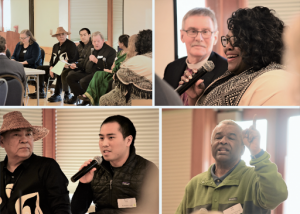 CENSUS 2020: FAN co-hosted a Census 2020 Faith-Based Summit in Tukwila last month to rally the faith community and local organizations around the census to ensure that all are counted. We heard from inspirational keynote speakers Ron Sims, former Deputy Secretary of the U.S. Department of Urban Development and former King County Executive (bottom right), and Rev. Dr. Kelle Brown of Plymouth Church Seattle (top right). Co-Director Elise DeGooyer led an interfaith panel, which included ELCA Bishop Rick Jaech (top right) who implored us to stand with our immigrant neighbors who may be fearful of how their information will be used.
CENSUS 2020: FAN co-hosted a Census 2020 Faith-Based Summit in Tukwila last month to rally the faith community and local organizations around the census to ensure that all are counted. We heard from inspirational keynote speakers Ron Sims, former Deputy Secretary of the U.S. Department of Urban Development and former King County Executive (bottom right), and Rev. Dr. Kelle Brown of Plymouth Church Seattle (top right). Co-Director Elise DeGooyer led an interfaith panel, which included ELCA Bishop Rick Jaech (top right) who implored us to stand with our immigrant neighbors who may be fearful of how their information will be used.
Wisconsin
Pastor Cindy Crane, Lutheran Office for Public Policy in Wisconsin (LOPPW) loppw.org
HUNGER: LOPPW participated in a conference call with hunger leaders from the Northwest Synod and East Central Synod of Wisconsin to plan a panel discussion the three groups will lead at a statewide Feeding Wisconsin conference. Pastor Cindy Crane earlier shared LOPPW’s presentation on hunger and advocacy with our main leader from the Northwest Synod. LOPPW also advised a direct service nonprofit addressing hunger on how to get involved with advocacy.
CARE FOR GOD’S CREATION: We focused on water for February’s Wednesday Noon Live. We also sent out action alerts on protecting children from lead in water, supporting farmers to care for their land in a way that would improve their production and protect drinking water, and a new comprehensive bill that addresses several environmental issues and that does not have much traction yet.
ANTI-SEX TRAFFICKING: LOPPW participated in our quarterly Wisconsin Anti-Human Trafficking Consortium, helped with updates on legislation and learned about one new bill that is relevant to LOPPW’s work.
IMMIGRATION: LOPPW participated in a conference call with our D.C. office and Directors for Evangelical Missions on immigration and began preparing for our focus on immigration for March Wednesday Noon Live.
 LOPPW displayed a table at the Greater Milwaukee Synod’s Together in Mission (left) and at the Northwest Synod of Wisconsin Walking Together (right). We have snazzy new t-shirts based on a design from a former ELCA t-shirt design.
LOPPW displayed a table at the Greater Milwaukee Synod’s Together in Mission (left) and at the Northwest Synod of Wisconsin Walking Together (right). We have snazzy new t-shirts based on a design from a former ELCA t-shirt design.
ELCAVOTES: We began seeking an intern or consultant to help LOPPW recruit poll workers in the context of talking about ELCAvotes resources, thanks to funding from All Voting is Local.
IN ADDITION: LOPPW led a workshop on advocacy at a congregation in the South-Central Synod. Pastor Crane had conversations with two new advisory council members from the La Crosse Area Synod – Irene TenEyck and Rev. Adam Arends – before welcoming them during our March check-in call.
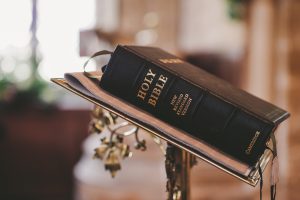 careful about human touch with Covid-19 spreading like wildfire. And, along with that call, perhaps the prophet in the digital pulpit would do well to remind people that this is not a “foreign” virus, as viruses don’t have nationalities, and we must resist language that pits humanity against each other, especially in times of crisis.
careful about human touch with Covid-19 spreading like wildfire. And, along with that call, perhaps the prophet in the digital pulpit would do well to remind people that this is not a “foreign” virus, as viruses don’t have nationalities, and we must resist language that pits humanity against each other, especially in times of crisis.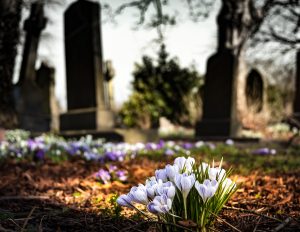 days (which, it is worth noting, John makes sure that Jesus actually does physical things post-resurrection, to show he’s not just a spirit appearing to people). The Gospel notes that Lazarus was there for four days, many hours past the time when he might have just been mistaken for dead, or that his spirit would appear.
days (which, it is worth noting, John makes sure that Jesus actually does physical things post-resurrection, to show he’s not just a spirit appearing to people). The Gospel notes that Lazarus was there for four days, many hours past the time when he might have just been mistaken for dead, or that his spirit would appear.
 doing it. And I want you to send me videos of you doing it! Ready?
doing it. And I want you to send me videos of you doing it! Ready?
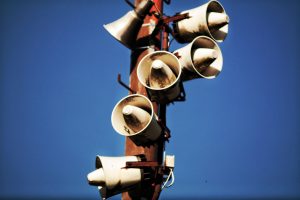

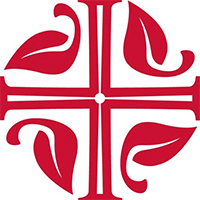 In Fall 2020, the newest resource in the Evangelical Lutheran Worship resource family will be made available. All Creation Sings, a liturgy and song supplement, will include liturgies, prayers, and approximately two hundred hymns and songs.
In Fall 2020, the newest resource in the Evangelical Lutheran Worship resource family will be made available. All Creation Sings, a liturgy and song supplement, will include liturgies, prayers, and approximately two hundred hymns and songs.
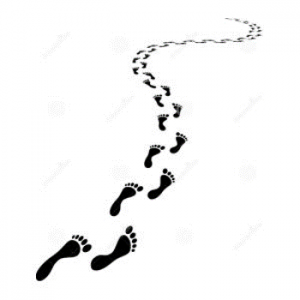
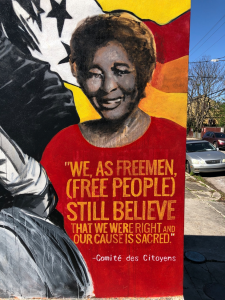
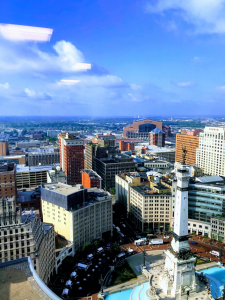

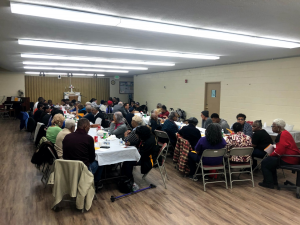
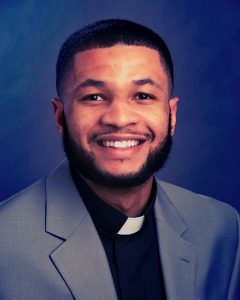 Rev. Louis Tillman is the Pastor of St. Philip’s Evangelical Lutheran Church in Baltimore. This congregation is the oldest African American Lutheran Church in North America. It was started as an African American church by a pastor who was recently freed out of slavery. St. Philip’s Evangelical Lutheran Church will be celebrating their 130th Anniversary on October 18, 2020.
Rev. Louis Tillman is the Pastor of St. Philip’s Evangelical Lutheran Church in Baltimore. This congregation is the oldest African American Lutheran Church in North America. It was started as an African American church by a pastor who was recently freed out of slavery. St. Philip’s Evangelical Lutheran Church will be celebrating their 130th Anniversary on October 18, 2020.



